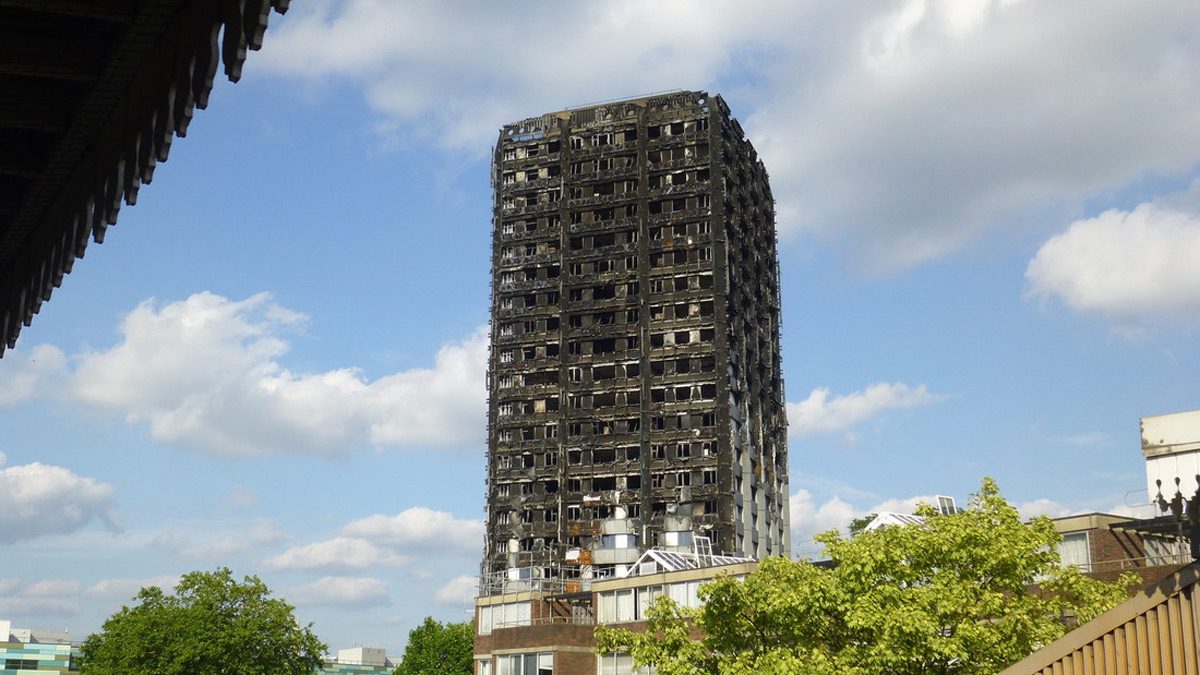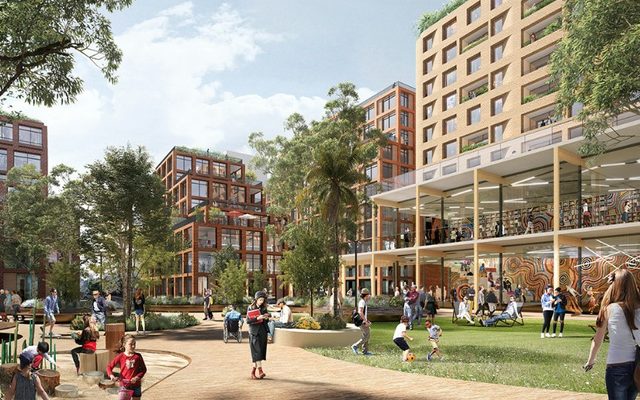This article is from the Australian Property Journal archive
THE United Kingdom government has threatened to ban Lendlease and other property giants if they do not replace combustible cladding from their buildings and/or force residents to pay for the costs.
After reaching an impasse, Secretary of State for Housing James Brokenshire yesterday wrote to 60 companies including major firms Lendlease, Pemberstone, Paddington Corporation and GLA Land & Property.
Secretary Brokenshire warned that if these companies do not replace the cladding or force home owners and/or leaseholders to pay for the work, the companies could be banned from tendering for government projects as well as face financial penalties.
The government was prompted to take action after revelations that residents of Sesame apartments in Battersea in south London were told they would have to pay up to £2 million to remove the cladding.
In the wake of the Grenfell tragedy, across the UK, around 306 residential buildings have failed the fire cladding test.
Late last month, the Ministry of Housing, Communities and Local Government revealed around 200 buildings have not informed the government their remediation plans.
Brokenshire said it was a “moral imperative” that these companies do the right thing.
“There is a moral imperative for private sector landlords to do the right thing and remove unsafe cladding quickly, and not leave leaseholders to cover the cost.
“If they don’t, we have not ruled anything out.
“I am also warning those who are not acting quickly enough to put in plans to remove dangerous cladding to take action now, or face enforcement action from their council,” Secretary Brokenshire warned.
So far, only half a dozen or so developers, including Barratt Developments, Legal and General, Mace and Taylor Wimpey announced they will wear the costs, regardless of whether they still own the building or not.
“A number of leading developers have stepped up to the mark and agreed to pay for work, and we urge others to follow their lead,” Brokenshire said.
As for Lendlease, residents at the 345-unit Green Quarter building in Manchester face a £3 million bill after a tribunal ruled the residents were liable for the costs.
“We recognise the concerns of residents with regards to the use of decorative cladding in Green Quarter,” Lendlease said in a statement. “The issue at Green Quarter is complex, involving multiple parties including Shepherd Construction, who were responsible for the design and build of Vallea Court and Cypress Place, and the current owner of the building, Pemberstone Ltd. We were not a party to the proceedings and the decision to take the residents to a Tribunal was not ours.”
The issue at Green Quarter is made more complex by the fact that Shepherd Construction was taken over by Wates Group in 2015.
Australian Property Institute CEO Amelia Hodge said whilst the API applauds the UK government’s action, this latest situation highlights how complex the issue is.
“We applaud the UK government for taking action, but at the same time, we have to sympathise with some of these companies, because they believed at the time the materials they were using were not combustible.
“It is important that the parties come together and reach a solution, in the interest of public safety.” Hodge said.
In Australia, owners of the Lacrosse tower have taken out a $11 million loan to replace the cladding. In Sydney, residents at 45 Bowman St Pyrmont face a $7 million bill.
These types of stories are expected to increase.
In June, Fire & Rescue NSW assessed 2,280 buildings and found 417 are potentially at risk. Last year the Victorian Cladding Taskforce identified 1,369 buildings at risk across the state. Of those buildings, it is since been established that 579 have not begun construction, and a further 129 are half built. Meanwhile the first stage audit by the South Australian government has classified nearly 200 buildings within Adelaide’s CBD as “of concern”.
The Australian Property Institute is currently working with the International Fire Safety Standards (IFSS) coalition to develop landmark global standards in Fire Safety.
Hodge is calling on building experts from Australia and Asia to nominate and join the World Bank and United Nations-backed IFSS panel.
The API is currently fielding candidates in Australia and Asia and Hodge has urged building experts to apply.
The world is turning to Australia for guidance, as it is the only country that has development guidelines.
Australia is the leader in this field, after two states, New South Wales and Victoria, introduced legislation prohibiting the use of Aluminium composite panels with a core of more than 30% polyethylene on any residential buildings over two storeys and commercial over three storeys.
Australian Property Journal





